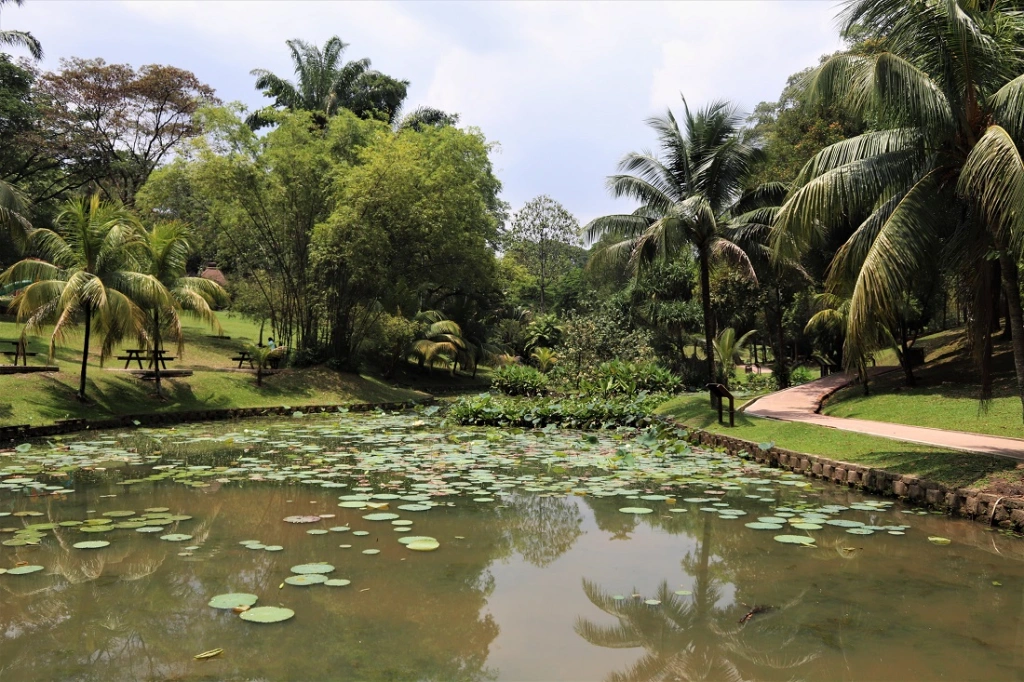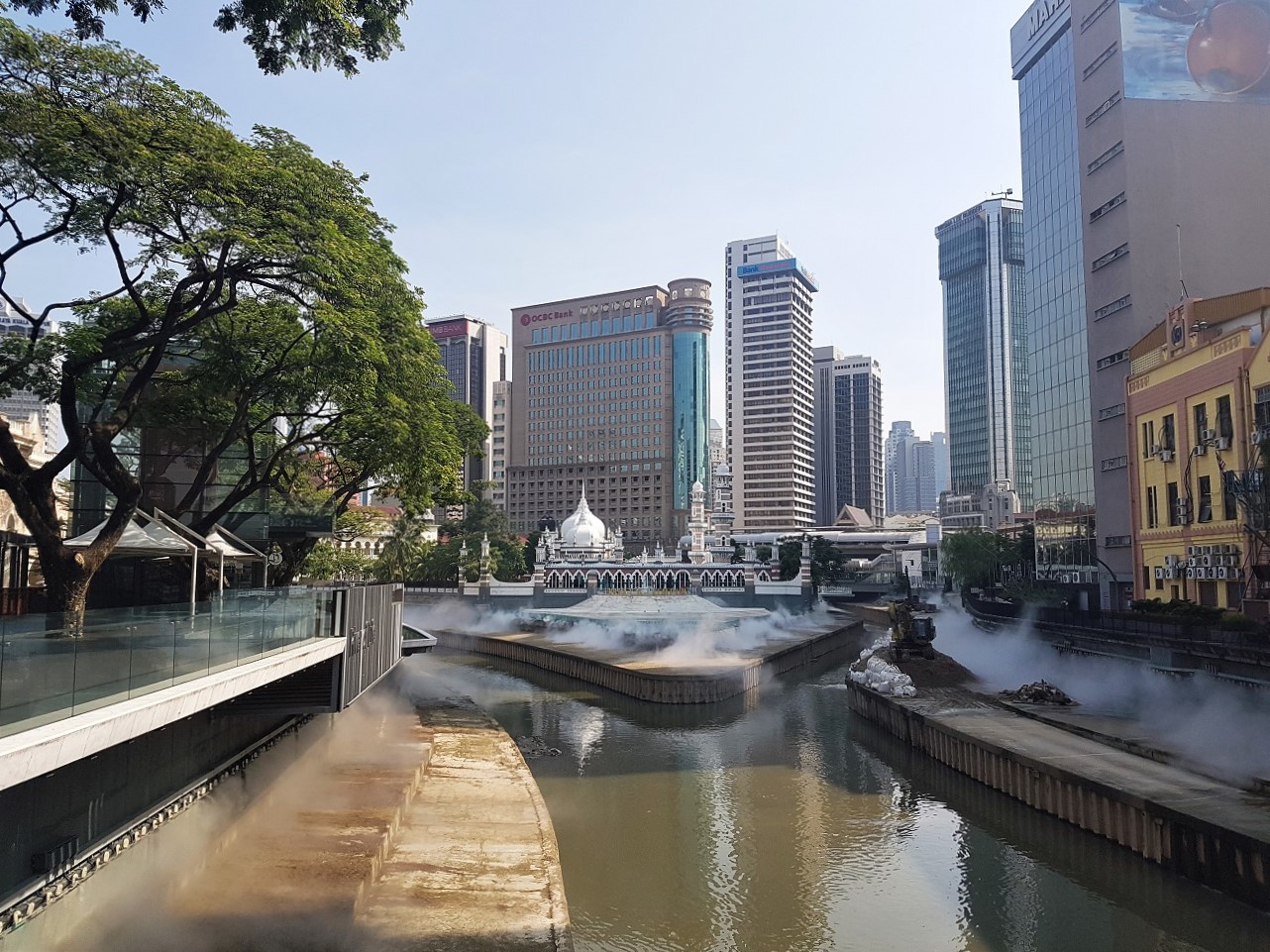After our wonderful introduction to Petra via the Siq and the Treasury, we continued exploring the ancient Nabatean capital via the Outer Siq.
The Outer Siq is a large path that leads to the heart of the City of Petra, and the rocks surrounding it are home to countless tombs and dwellings.
As we walked along the Outer Siq, we passed a number of Bedouin stalls lining the route, as well as a few Bedouin offering camel, horse and donkey rides.
Just beyond the tombs, we reached a staircase carved into the rock, which led to the High Place of Sacrifice on top of the Jebel Attuf mountain, and decided to follow it.

The trail wound round the mountain, following the natural path of the rock, and it was a long, but comfortable climb to the High Place of Sacrifice.
Near the top, the path all but disappeared and we found ourselves walking over the bare rock face.
The higher we got, the windier it became, and I didn’t feel particularly safe as we neared the summit, as there was nothing to stop us hurtling off the mountain if we were blown off our feet.

Luckily, as I approached the summit, an elderly Bedouin woman grabbed me by the hand and pulled me up.
The High Place of Sacrifice (above), is large rectangular space cut into the top of the mountain, with an altar to the side, and it is thought to have been used by the Nabatean people for animal and human sacrifices.
Despite the slightly hairy end to the climb, it was well worth it as the views from the top, looking out over the main thoroughfare in Petra (below), were phenomenal.
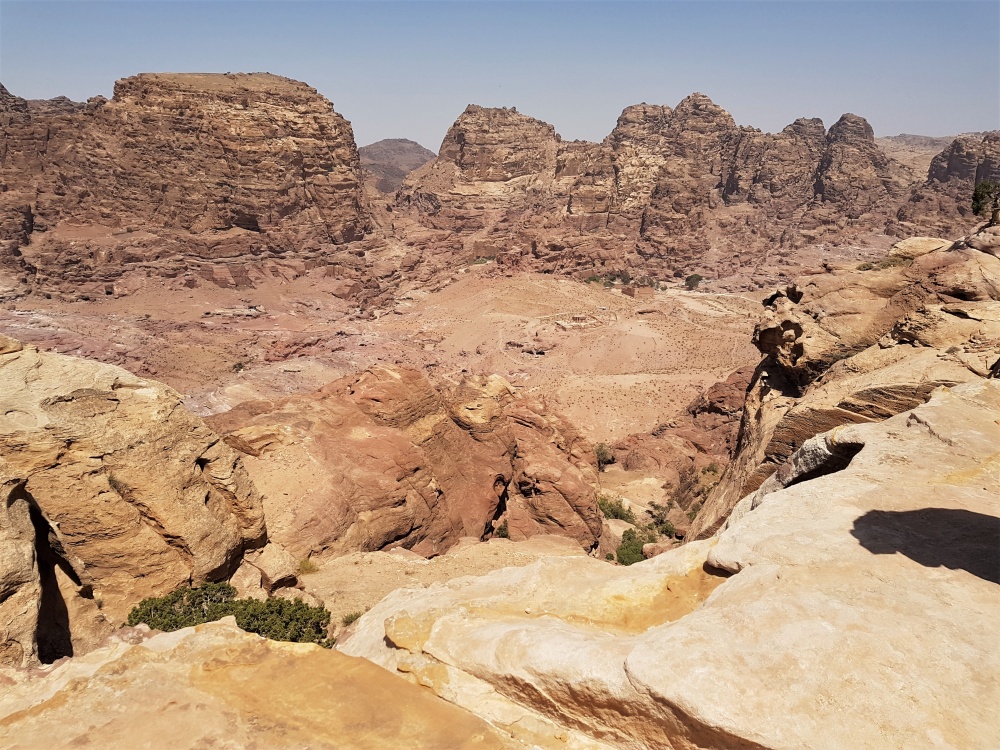
The elderly woman stayed with us as we looked around the High Place of Sacrifice and climbed down a series of steps on the other side of the altar to a viewing platform, where we sat on the edge of the mountain, enthralled by the view in front of us.
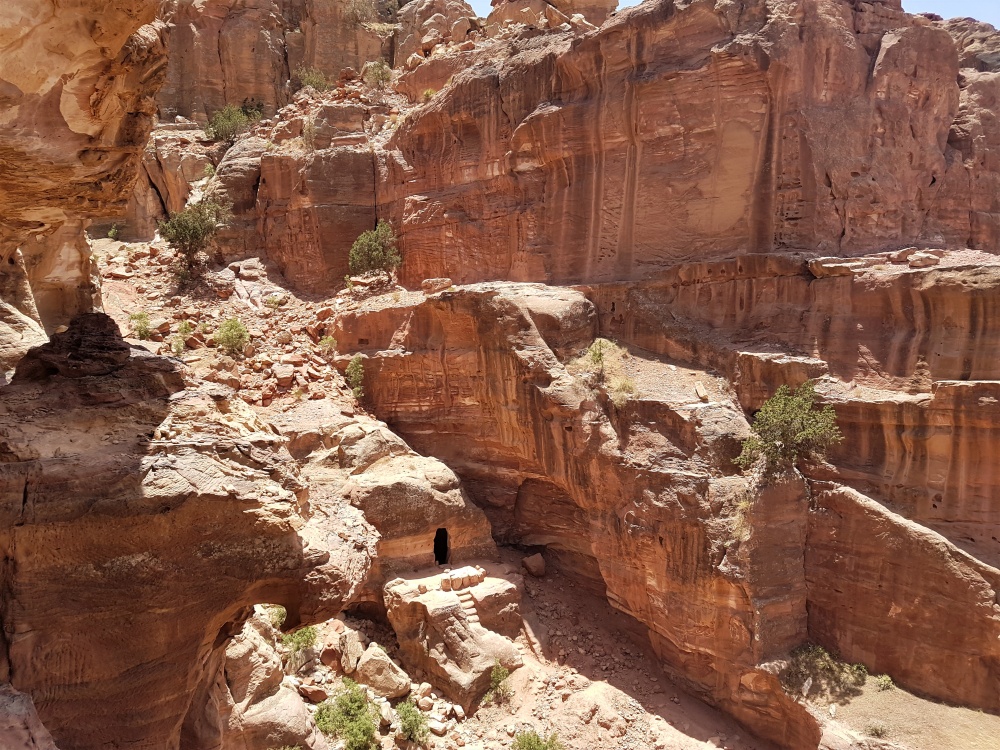
After a short rest, we said goodbye to the woman and decided to take a different path down the mountain, following a long, winding trail through the rocks.
Thankfully, there was a light breeze, which helped reduce the effects of the strong sun that was now blazing down upon us.
As we walked, I was captivated by the incredible shapes in the rocks, caused by millennia of water erosion, and the vast array of colours – an intoxicating mix of reds, purples, yellows, blacks, greens, whites and even light blues.
I’d never seen anything like it, and try as I might, it was impossible to capture the full array of colours in a photo.
The rock formations were spectacular and I kept finding myself tripping over the rocks on the ground because I was so busy looking around in awe at the astonishing geology.
Halfway down the mountain, we stopped at a shack belonging to a Bedouin woman for a welcome drink, before continuing along the trail.
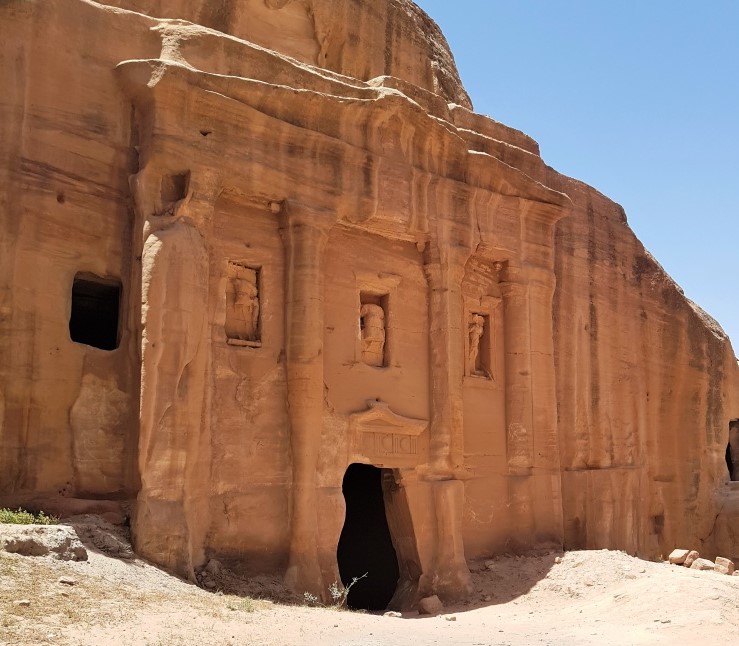
We soon reached a large plateau, home to a number of tombs, including that of the Roman Soldier (above). We ventured inside the tomb and found a large, square room with black walls and a black ceiling.
I was a little taken aback by how dark it was inside because for some reason, I’d assumed it would be the same rose-red hue as outside.
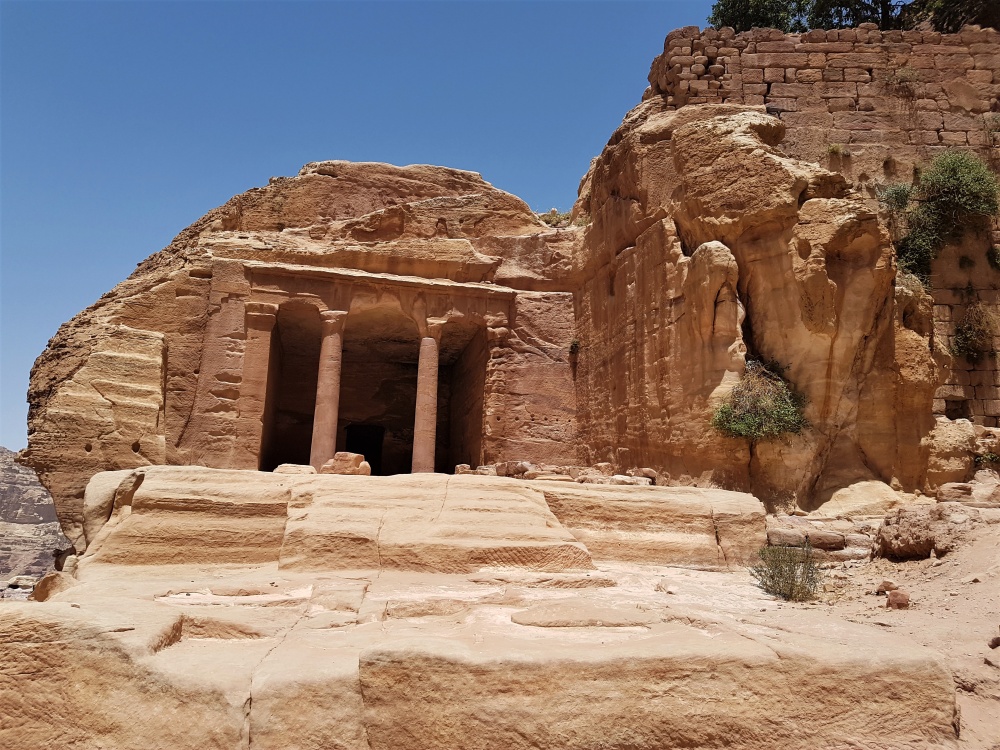
There were a series of other tombs in the near vicinity, too, including the Garden Triclinium (above), the Broken Pediment Tomb and the Renaissance Tomb.
But we decided against going inside them all, as they didn’t seem to be particularly exciting, and instead continued to follow the long, winding trail down the mountain.
As we carried on along this final stretch, we were in the full glare of the searingly hot sun, and by the time we reached the City of Petra, I was feeling quite ill.
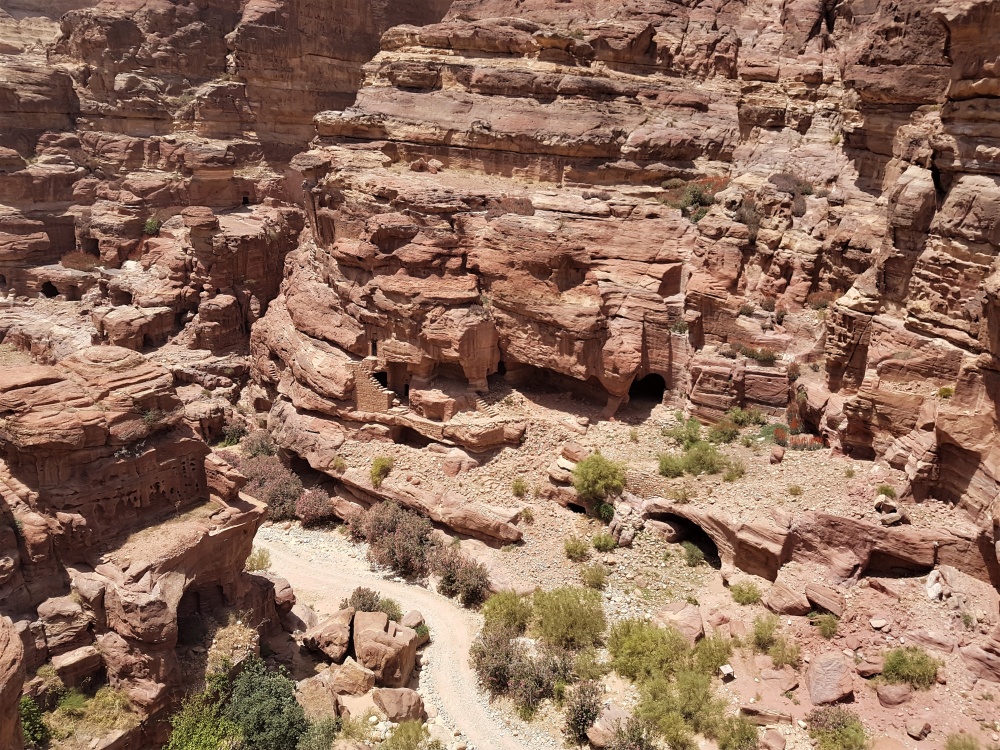
Once in the city, we headed to a large tented restaurant for lunch, where I felt too sick to eat. But after taking paracetamol and drinking plenty of water, I made myself eat – some salad, hummus and flatbread.
I was still overheating, though, so I went to the bathroom and bathed my feet and face in ice-cold water in a desperate bid to cool down.
After an hour or so’s respite and feeling a little better, we set off along a trail towards the Ridge Church. Along the way, we enjoyed great views over the buildings opposite, including the altar, the royal palace and the market place.
When we reached the church, we stepped inside to take a look at a series of fascinating mosaics that dated back to the 6th century AD.
From the church, we carried on along the path towards the Royal Tombs (above), stopping en route at a small shack for a quick respite, as by now, I wasn’t the only one feeling the effects of the sun.
I poured water all over my face to try to cool down, and once we felt better, we set off again and soon arrived at the Royal Tombs.
The Royal Tombs are a series of enormous temples carved next to each other in the El-Khubtha mountain.
The remarkable temples are thought to have housed the tombs of the kings and queens of Petra. We made our way inside the largest tomb, the Palace Tomb, and then ventured inside the Urn Tomb.
The rectangular chamber inside the Urn Tomb was massive, with an exceptionally high ceiling and recesses cut into the back wall and along the sides.
The tomb was lovely and cool, and we sat down for a respite to admire the red, purple and white marbling effect in the rock.
Despite there being no intricate carvings or decoration inside the tomb, it was a stunning sight thanks to the natural beauty of the rock.
After a good look around the Royal Tombs, we rejoined the main thoroughfare in the City of Petra, stopping off along the way to look at the Bedouin stalls that lined the street.
We slowly made our way back through the Outer Siq (above) to the Treasury (below), where I was amazed by how different it looked in the late afternoon sunshine compared to the early morning.
The ornate temple was now a rich, reddy-pink colour instead of the golden hue of the morning.
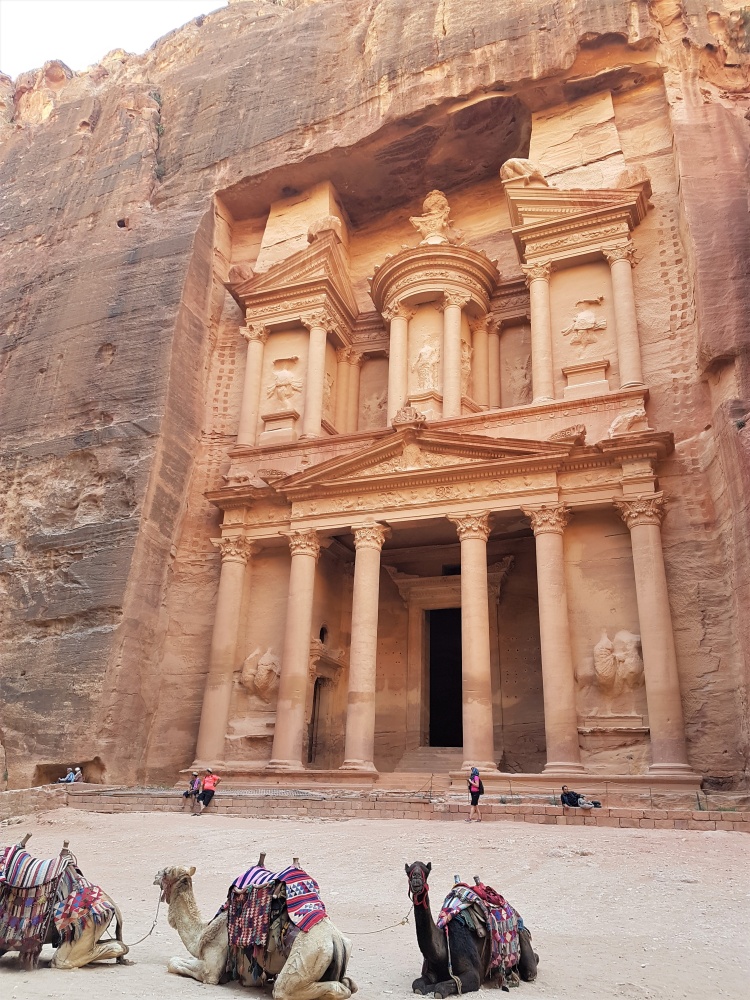
It was a long, arduous walk back through the Siq and to the visitor centre – I’d forgotten quite how long it took to get into the city. But despite feeling hot, bothered, tired and a little woozy, it was well worth it because I’d had a marvellous day.
Petra is a remarkable place, quite unlike anywhere else on Earth. A natural geological stunner, it’s home to some of the most incredible archaeology on the planet and I couldn’t wait to get back to explore some more.
Stay tuned for the final part of my adventures in Petra, where I hiked to the Monastery and had one of my all time favourite travel experiences…





